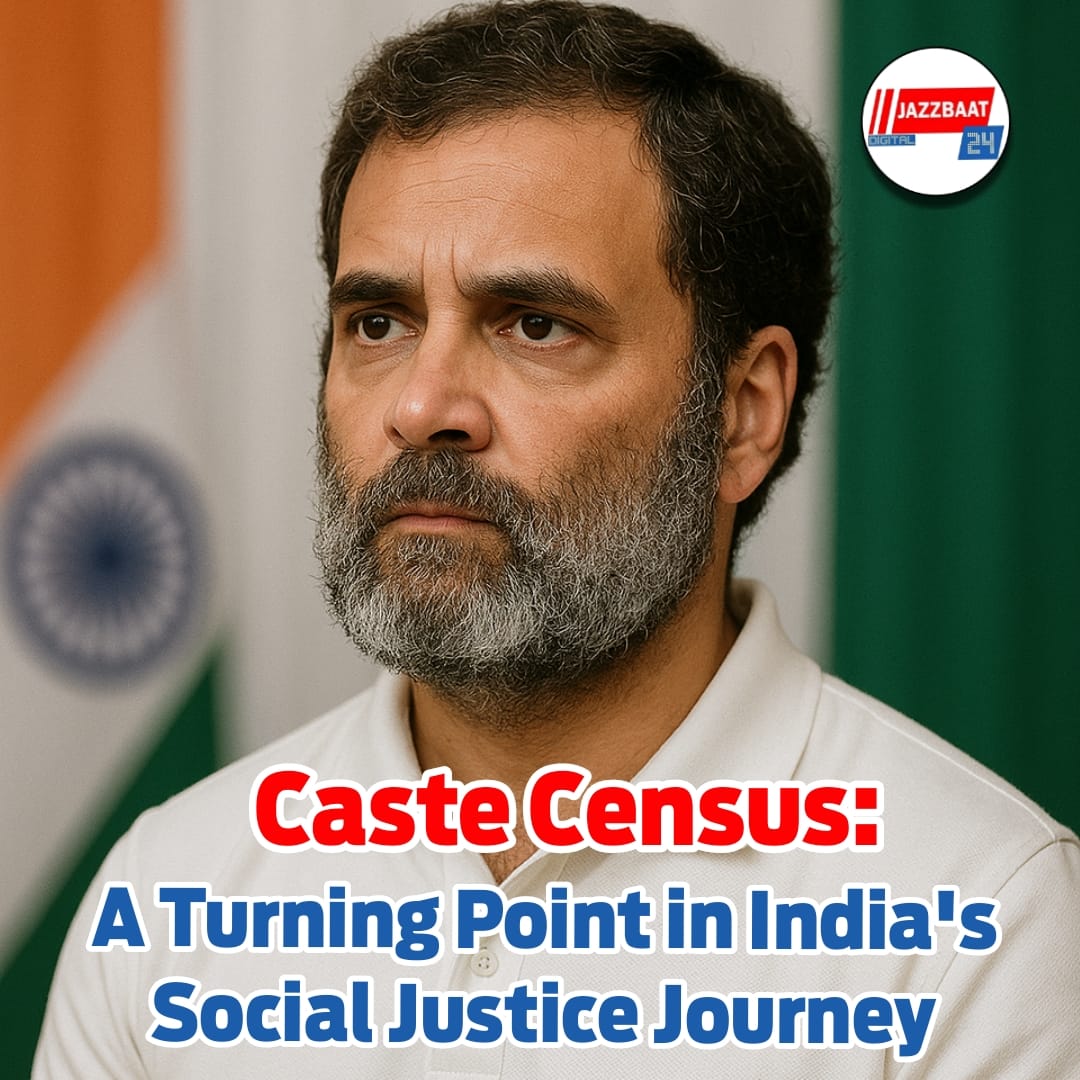
Whether this is a masterstroke or a politically driven decision is anyone's guess. But one thing is absolutely clear: the need for a caste census has irrevocably come. Credit should be given to Rahul Gandhi for keeping this question on the top of India's national agenda despite being subjected to day-in and day-out ridicule, criticism, and assault by the forces of the social justice movement's adversaries. Though Nitish Kumar was among the earliest to rekindle the proposal in recent times, the demand for a caste census has its origins in the Kaka Kalelkar Commission and gained additional strength from the Mandal Commission. The question now is: how will this announcement alter India's political discourse? Will it divert attention away from the religion-based politics of the moment?
**A Defining Milestone**
As this author, along with his co-author Dr. Laxman Yadav, interprets it—this announcement might be the third most decisive turning point in India's centuries-long battle for equality. The first was when the Indian Constitution was adopted, when caste-based hierarchies were abolished legally and equal rights were given to all citizens, be they Brahmin or Shudra. But social reality outside of law hardly changed. Despite the constitutional protections, caste discrimination continued to exist—particularly against Dalits and OBCs. Reservation policies of SCs and STs were largely greeted with opposition by those individuals who had long enjoyed hereditary social benefits.
Nonetheless, the Constitution was able to plant the seeds of a quiet revolution. It raised the level of awareness and sense of entitlement among the oppressed classes, which began to use their numerical power to demand justice and dignity. This increasing awareness found its milestone expression when Prime Minister V.P. Singh introduced the Mandal Commission's recommendations in 1990, providing 27% reservations to OBCs. That decision is the second most crucial juncture in India's movement toward social justice.
**Emergence of a 'Hindu' Identity**
The Rashtriya Swayamsevak Sangh (RSS) and Bharatiya Janata Party (BJP) reacted by attempting to forge a uniting religious identity through the ideology of Hindutva. The Ram Mandir movement sought to erase caste identities in the face of a uniform Hindu identity. Although partially effective, this movement was predominantly dominated by upper castes and perceived as a response to the emergent Mandal-led assertion by the backward castes. Uttar Pradesh states witnessed tremendous support for the BJP by upper caste voters after 2014.
However, the drive for social justice was relentless. Mandal politics led to a fierce debate among backward classes, asking why power continued to be held by a select few. This ideological awakening created a number of caste-based regional parties. The likes of Mulayam Singh Yadav, Lalu Prasad Yadav, Nitish Kumar, Kanshi Ram, Mayawati, and Ram Vilas Paswan became the champions of the backward classes, while national parties like Congress lost their hold in key states.
The BJP, aiming to manage this shift, promoted leaders like Kalyan Singh and Uma Bharti to project inclusivity. Yet, the party’s core remained firmly rooted in its Hindutva agenda and showed hesitance in fully decentralizing power.
**Rahul Gandhi’s Strategic Pivot**
In this ever-changing political scenario, Rahul Gandhi understood that the Congress Party had to revive its social base. Knowing that OBCs, Dalits, Adivasis, and marginalized Muslim groups constitute more than 80% of India's population, he started pushing vehemently for a caste census. His purpose was obvious: to counter the ideological hegemony of Hindutva with a counter-narrative based on representation and equality.
As the demand picked up pace, with support from leaders such as Akhilesh Yadav and Tejashwi Yadav, it brought forth clear discomfort within the BJP and RSS circles. The results of the 2024 general elections were a wake-up call, prompting the ruling party to change its stance. Significantly, even prior to the announcement by Prime Minister Modi, the RSS, at a Palakkad meeting, recognized the necessity of such a survey—not for political dividends, but for targeted welfare. This development points to a larger recognition that social justice underlies true Hindu unity.
**A Beginning, Not an End**
The caste census is not the end, but just the beginning of a larger change. The Congress Party, in its 2024 manifesto, not only supported the census but also called for doing away with the 50% cap on reservations and imposing quotas in the private sector. Whether all these reforms will be actualized or not is doubtful. But as Dr. B.R. Ambedkar wrote in *Annihilation of Caste*, "Only when Hindu society becomes casteless can it be strong enough to defend itself."
The way to unity is through guaranteeing equality to everyone. The caste census could be just the start of a more profound societal transformation that finally converts India's constitutional ideals into lived experiences.